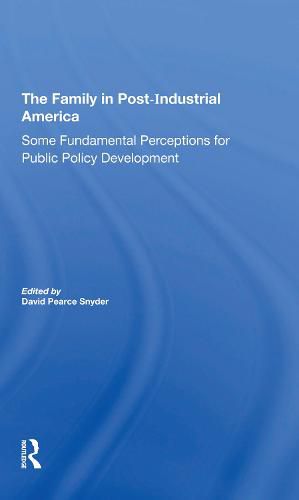Readings Newsletter
Become a Readings Member to make your shopping experience even easier.
Sign in or sign up for free!
You’re not far away from qualifying for FREE standard shipping within Australia
You’ve qualified for FREE standard shipping within Australia
The cart is loading…






Traditional public policy toward the family, the authors of this book argue, has produced an array of fragmented mechanical programs in response to specific, perceived dysfunctions in family performance. Policy has been biased by a restrictive perception that families unlike the nuclear, two-parent household are either ailing or aberrant. In response to these observations, the authors portray the family as a natural, ongoing, and dynamically adaptive element of Western civilization. They suggest that legislators and policy analysts should view the household as a tangible social and economic asset and an appropriate technology with which a number of tasks (such as child care, education, health, disability and unemployment insurance, social security, and the welfare of the aged) now performed by more complex and costly formal institutions may be better accomplished.
$9.00 standard shipping within Australia
FREE standard shipping within Australia for orders over $100.00
Express & International shipping calculated at checkout
Traditional public policy toward the family, the authors of this book argue, has produced an array of fragmented mechanical programs in response to specific, perceived dysfunctions in family performance. Policy has been biased by a restrictive perception that families unlike the nuclear, two-parent household are either ailing or aberrant. In response to these observations, the authors portray the family as a natural, ongoing, and dynamically adaptive element of Western civilization. They suggest that legislators and policy analysts should view the household as a tangible social and economic asset and an appropriate technology with which a number of tasks (such as child care, education, health, disability and unemployment insurance, social security, and the welfare of the aged) now performed by more complex and costly formal institutions may be better accomplished.